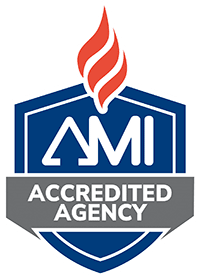Prefer to listen? Use the player to listen or read below.
I was recently interviewed for an article by Paul Hadowanic at Ratchet + Wrench. Paul had initially intended to write a story talking about marketing a shop transitioning from being a specialty shop to being a generalist shop. I found this very difficult to speak to as I am a proponent of specialization, and most of the shops I know of who have transitioned have gone from generalists to specialists.
I was thrilled that he made the article talk about transitioning in both directions in the end.
Check out Paul’s article “Identity Crisis – A Guide to Marketing a Shop In Transition.”
It’s no secret that I’m a fan of specialization. I was a Mercedes dealer tech. When I opened my first shop, it was Mercedes-only. At my subsequent shops, we worked only on European cars (we did work on some other brands when our clients would ask us to, but only at our discretion).
In my marketing agency, Shop Marketing Pros, we do marketing for auto repair shops. We will likely niche down even further at some point. I bet you could guess the niche 😂.
In the early days of my agency, we were known as 5 Stones Media. That’s still our legal business name. We were a generalist agency, and we struggled consistently. The problem was we’re located in a small town, and the only reason anyone had to do business with us was that we were geographically close to them. So we competed with other local agencies on price. It was a race to the bottom.
I knew from day one that I wanted to specialize. My business partner didn’t want anything to do with specializing. I eventually bought him out, and a couple of years later, we started Shop Marketing Pros. It’s the best thing we’ve ever done in our business. It has truly been life-changing.
Before I get too far into this, I have to say that I have nothing against generalist shops. I have tremendous respect for them. They are succeeding in a business that I could not succeed in. Generalist techs are on a whole-nother (that’s a word here in the south) level. In my opinion, a good generalist tech is one of the most talented and intelligent people in the world.
If you run a successful generalist shop, you’re amazing. We have many generalist shops as clients, and we have had great success for them. But marketing a generalist shop is VERY different than marketing a specialist shop.
The biggest thing that keeps people who want to specialize from actually specializing is a scarcity mindset. They think they’re leaving a lot of business on the table. But every shop I’ve ever known that moved from generalist to specialist has grown exponentially.
This article will tell you what I see as the benefits of specializing an auto repair shop.
By the way, although only one section is directly related to marketing, EVERYTHING in this article is about marketing in one way or the other.
You Know Exactly Who You Are Marketing To
As a marketer, I see daily how much easier it is for a shop specializing to attract new clients than for a generalist shop.
When a shop specializes in certain brands, they can speak directly to their potential customers through their messaging.
For example, let’s say you are a BMW owner and you’re looking for a great shop to take care of your car. Which one of these statements below resonates with you the most?
“Over 40 years of experience working on all makes and models.”
“Serving Mercedes and BMW owners for over 20 years.”
Though it lists half the years of experience, the second statement resonates better because you’re telling the reader you work on their specific make of car.
This translates through your website, social media, email, paid ads, radio, billboards, and anything else you’re doing. When a person sees that you specialize in their exact make of car, they’re more likely to convert into a client.
Your Customers Trust You More
This goes hand-in-hand with it being easier to market to people when you specialize. When you work on only specific makes of cars, people think you’re better than your generalist competition, and in most cases, you are (on the particular make you specialize in).
Think about it. Usually, specialty shops work on “special” vehicles. Think all of the European brands, diesel trucks powered by the Powerstroke, Cummins, or Duramax engines, or sports cars like Corvettes, Mustangs, or exotics. If you own one of these cars and bring it to a generalist shop, it’s going to be in the back of your head the whole time “do they really know how to work on my car/truck?”
If you only work on light and medium-duty diesel trucks at your shop, the business owner who has a fleet of Powerstroke F-250s and F-350s has so much more comfort with your level of knowledge and expertise than they would a shop that works on everything.
When someone pulls up to your shop in their RAM 2500, and you have a shop and a parking lot full of RAMs, F-series, and GM HD-series trucks, they know they’re in the right place.
People trust specialty shops more than they do generalist shops.
You Can Invest In The Best Special Tools And Equipment
I personally cannot imagine trying to have every special tool or piece of equipment to do every job possible for every make and model that comes into a typical generalist shop. The amount of money you would have to invest in scan tools alone is unfathomable.
In my shop, just having all of the tools for the Euro brands was nearly impossible, but we rarely found ourselves in a position where we couldn’t do something that the dealer could. This would not have been possible had we tried to be everything to everyone.
Some of our Shop Marketing Pros clients are heavily specialized. We have a client who works on nothing but diesel pickups. We have a client who only services Honda, Toyota, Acura, and Lexus (essentially two car lines), we have a client who does nothing but diagnostic work, and we have a bunch of clients who do Euro only.
The more specialized they are, the easier it is for them to truly be that “dealership alternative” that shops like to say they are.
It Makes It Easier To Hire Techs
This is one of those things that’s hard to convince people of. It goes back to that scarcity mindset I talked about in the intro.
When you’re looking for a tech that specializes in certain brands of cars, you would think you are really limiting yourself. There are indeed a lot more generalist techs out there than specialty techs, but there are also a lot more generalist shops than specialty shops.
The thing is, you’ll be hard-pressed to get a specialty tech to become a generalist. They’ve seen the benefits of specializing, and they want nothing to do with working on everything.
If a Mercedes tech is looking for a job, they will look for the best shops that specialize in Mercedes. You can probably even get them to expand into other Euro lines, but specialty shops also tend to have specialty techs because they see the value in specialization.
So you go from looking for techs to techs looking for you. I know that’s a stretch in today’s climate of a technician shortage, but it’s much more likely to happen in a specialty shop than a generalist shop.
As much as I hate to say this, today, when you need a good tech, you might just have to steal them. When you specialize, you know precisely where to steal them from. Lots of times, that is the dealership. You need a Duramax tech; you geofence the local Chevrolet and GMC dealers and put hiring ads directly in the palm of their hand.
Your Techs Are More Productive
I was a Mercedes tech. I started my career at Audubon Imports, the Mercedes dealership at that time in Baton Rouge, LA. When I got married, Kim and I moved to Raleigh, NC, where I worked for Leith Mercedes, eventually becoming one of 2 techs on staff that did nothing but high-level diagnostics.
I was a damn good tech. I was so good that Mercedes Benz of North America’s tech-support department used to call me when other dealerships had problem cars that they couldn’t figure out. That’s the honest-to-God truth.
As good as I was, I would have struggled as a generalist tech. When I’m under the hood of a Mercedes, I feel invincible. Even to this day, throw any problem on a Mercedes at me, and I’ll figure it out. Try to get me to work on another brand of car, and I’d rather shave my head with a cheese grater.
Think about it. The techs that work at a generalist shop can go weeks or even months between working on the same car model twice. With the incredible diversity in vehicles, engines, transmissions, and all of the various systems in cars these days, you can’t possibly retain that much information in your head.
When you specialize, you get to know the systems. You see the same car multiple times every week, and sometimes every day. You see the same cars, you see the same problems, and you do the same repairs over and over and over.
I consistently turned 80 hours in a 40 hour week. If I turned below 60 hours, I was MAD. My techs all turned between 60 and 100 hours per week at my shop. We had the double blessing of having fast techs and being specialists.
All of my techs could do a Mercedes M104 head gasket in 4 hours or less. This was a 12-hour flat rate job. It’s because we had all done the job hundreds of times. I personally have not done this job in over ten years, and I promise you I could do it blindfolded in 4 hours today. It’s not because I’m a “super tech.” It’s just muscle memory.
I’ve beaten this dead horse long enough, but the fact is when you specialize, your entire shop is more productive.
In Conclusion
Specializing isn’t for everyone, but if you’re here reading this article, you’ve probably been thinking about it. If you’re opening a new shop and thinking of specializing, I cannot recommend it enough.
Go check out the article over at Ratchet & Wrench. They cover both sides of this, and it’s definitely worth the read.




